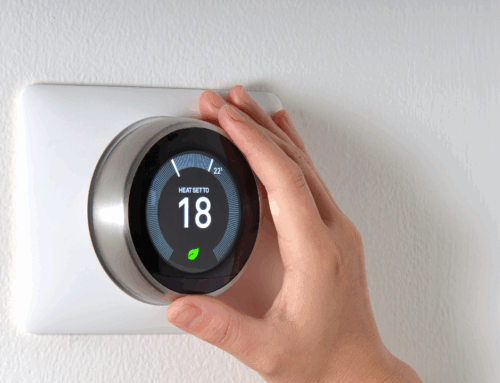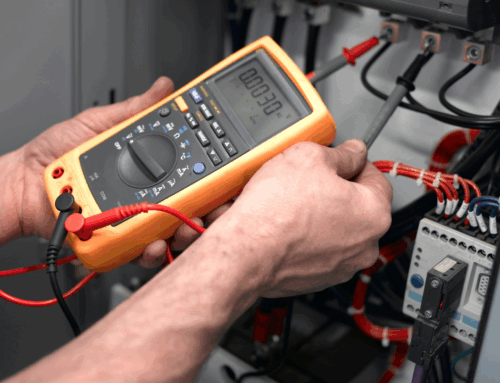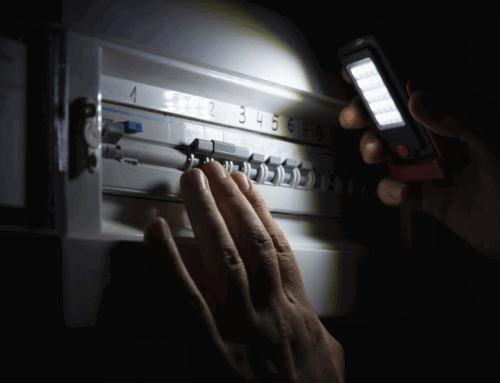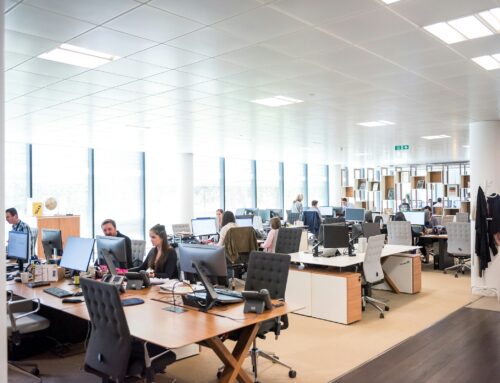As we move further into 2025, the commercial electrical sector is experiencing rapid technological advancements and shifting priorities. Business owners and facility managers must stay informed about the latest trends in commercial electrical systems to remain competitive, improve efficiency, and meet sustainability goals. From energy-saving technologies to smart systems integration, here are the top commercial electrical trends to watch in 2025.
1. Energy Efficiency and Sustainability
Energy efficiency remains a significant trend in the commercial electrical space, driven by rising energy costs and growing environmental concerns. Businesses are increasingly adopting energy-efficient lighting, appliances, and systems to reduce their carbon footprint. LED lighting, for example, continues to dominate commercial spaces due to its long lifespan and low energy consumption.
In 2025, the push for sustainability will likely intensify, with more businesses turning to renewable energy sources such as solar and wind power to meet their energy needs. Commercial electrical systems are being designed to integrate seamlessly with these renewable technologies, allowing businesses to reduce reliance on traditional energy grids. In addition, energy storage systems are gaining popularity, enabling businesses to store excess energy for use during peak demand hours or outages.
2. Smart Electrical Systems and Automation
The rise of smart technology is transforming commercial electrical systems. By incorporating Internet of Things (IoT) devices, businesses can gain real-time insights into their energy consumption and automate various aspects of their electrical systems. Smart meters, lighting controls, and thermostats allow businesses to optimise energy usage, reduce waste, and save on operating costs.
In 2025, the integration of automation will go even further. Commercial buildings will feature smart systems that automatically adjust lighting, heating, cooling, and even power distribution based on occupancy or environmental conditions. For example, smart lighting systems may automatically dim or switch off lights in unoccupied areas, further reducing energy usage. Automated electrical systems will also provide greater convenience and reliability, with predictive maintenance capabilities to identify potential faults before they occur.
3. Electrification of Commercial Vehicles
The increasing adoption of electric vehicles (EVs) is one of the most notable trends influencing commercial electrical systems. In 2025, businesses will likely expand their EV infrastructure, installing more charging stations for employees, customers, and fleet vehicles. This transition to electric fleets will require significant upgrades to commercial electrical systems, particularly in terms of charging capacity and power distribution.
As businesses switch to electric vehicles for transportation, commercial electrical systems will need to support fast-charging stations and handle higher loads of electricity. Integrating EV charging infrastructure into commercial buildings will require careful planning, as the electrical system must accommodate the additional demand while ensuring safety and efficiency.
4. Advanced Building Energy Management Systems (BEMS)
Building Energy Management Systems (BEMS) continue to be an essential part of modern commercial electrical systems. These systems integrate a variety of electrical components and technologies to monitor and optimise a building’s energy usage. In 2025, BEMS will become even more advanced, utilising artificial intelligence (AI) and machine learning to make real-time adjustments to energy consumption.
With the ability to analyse vast amounts of data, BEMS will enable commercial properties to optimise everything from HVAC systems to lighting, improving comfort, efficiency, and sustainability. Businesses will also gain access to more sophisticated reporting tools, allowing for better decision-making when it comes to managing energy consumption.
5. Increased Focus on Electrical Safety
As commercial electrical systems become more complex, the need for safety will remain a top priority. Businesses are investing in advanced electrical safety technologies to protect their assets and employees from electrical hazards. In 2025, more commercial properties will implement Arc Fault Circuit Interrupters (AFCIs) and Ground Fault Circuit Interrupters (GFCIs) to enhance safety and prevent electrical fires.
In addition, regular electrical audits and inspections will become standard practice for businesses to ensure that their electrical systems meet the latest safety regulations. As workplace safety becomes increasingly emphasised, commercial electricians will play a critical role in ensuring that electrical systems are operating safely and in compliance with industry standards.
6. Integration of Renewable Energy Sources
The demand for renewable energy solutions in commercial electrical systems will continue to grow in 2025. Solar power, wind energy, and other renewable energy sources will be integrated into commercial buildings to reduce dependency on traditional power grids. Businesses are expected to invest in solar panels, wind turbines, and energy storage solutions, making their electrical systems more self-sufficient.
These renewable energy sources will not only reduce a business’s environmental impact but also help lower electricity bills in the long term. With the right integration of renewable energy into their electrical systems, businesses can create more sustainable and cost-effective operations.
Conclusion
The commercial electrical landscape is evolving rapidly in 2025, with innovations aimed at improving efficiency, safety, and sustainability. From energy-efficient lighting and smart automation systems to the electrification of commercial fleets, businesses are embracing cutting-edge technologies to optimise their operations. By staying ahead of these trends, businesses can future-proof their commercial electrical systems, enhance their environmental credentials, and ultimately lower operating costs.
As the demand for smarter, more sustainable solutions increases, the role of commercial electricians will be more important than ever. Professional electricians will be at the forefront of implementing these advanced technologies, ensuring that systems are designed and maintained to meet the needs of businesses in an increasingly energy-conscious world.







Leave A Comment